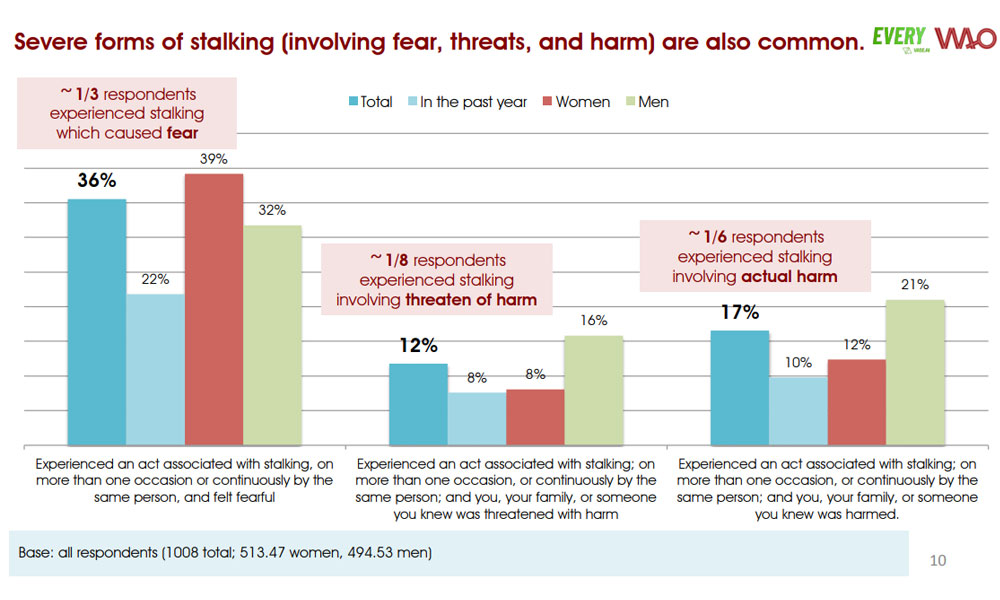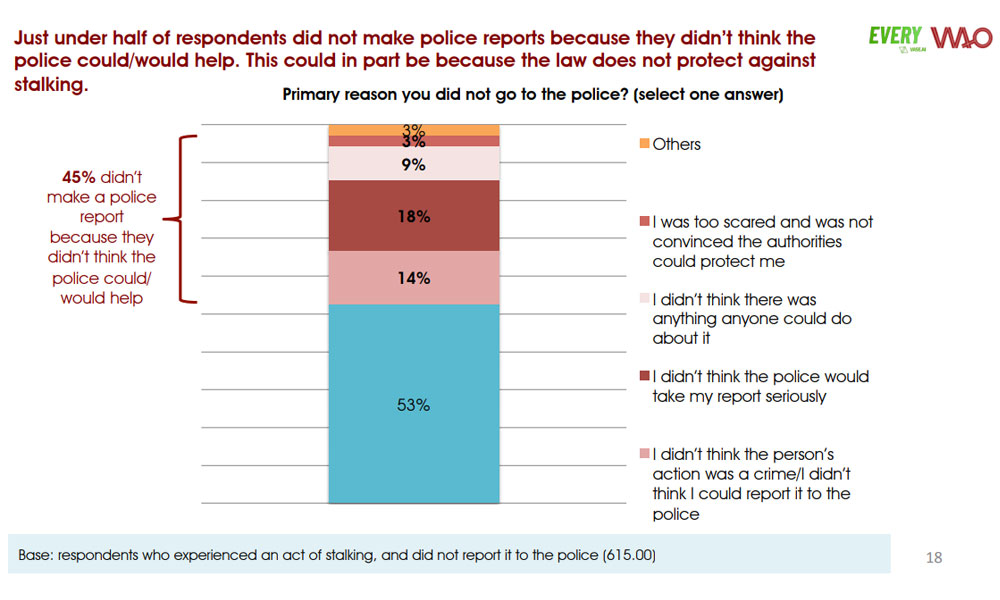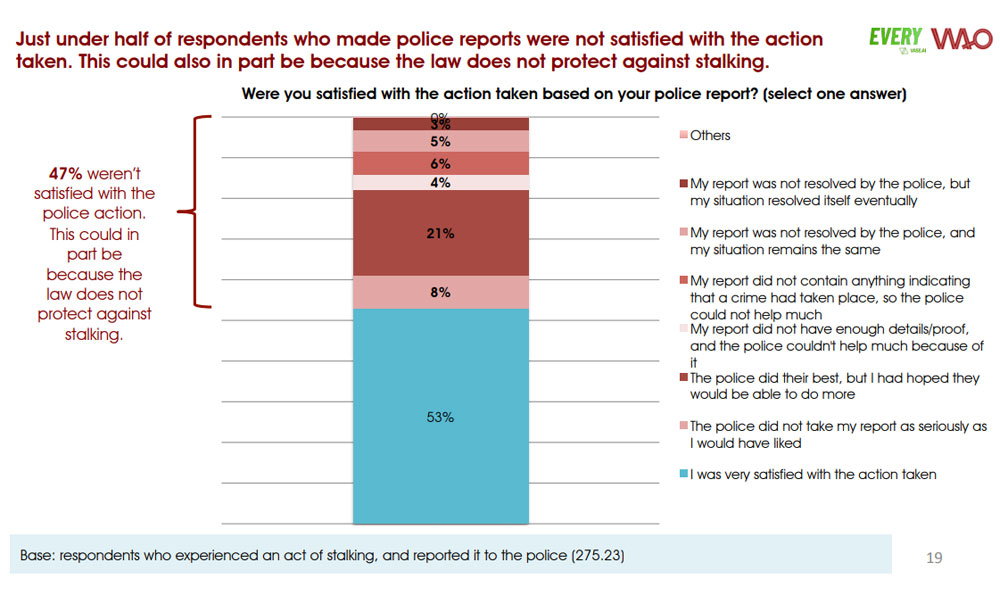A survey by the Women's Aid Organisation (WAO) has found that while more women were victims of stalking than men, the experience for men can be more dangerous.
The survey found that more men experienced stalking that involved threats of harm or actual harm.
The survey "Understanding Malaysians' Experiences of Stalking" had 1,008 respondents, of whom 51 percent were women, and 49 percent were men.
Of those surveyed, only 18 percent initially said they had experienced stalking when asked if they knew what it was.
However, WAO deputy executive director Yu Ren Chung told Malaysiakini that an analysis of their answers on other questions - revealed that the number of those who experienced harassment was actually 36 percent (39 percent of women, 32 percent of men).
The analysis was based namely on whether they experienced an act of stalking, experienced it more than once or continuously, and whether it caused them fear.
"So the 18 percent is based on what people's understanding of stalking is.
"And 36 percent is based on asking them what they actually experienced," he said.
Based on these, the WAO found that 12 percent of respondents (eight percent of women, 16 percent of men) experienced stalking that involved threats of harm.
Seventeen percent of respondents (12 percent of women, 21 percent of men) also experienced stalking that led to actual harm.

Overall, 88 percent of respondents experienced an act associated with stalking, with 34 percent experiencing it in the past year.
Most of the stalkers (58 percent) were strangers, while some were partners (15 percent), spouses (eight percent), and ex-spouses (five percent).
More than 70 percent of respondents had received unwanted phone calls, messages, emails, chats or social media messages.
Some (12 percent), however, had been spied on with a camera or GPS, and some 33 percent had stalkers show up at their homes, workplace, or school.
A majority of those who experienced stalking (69 percent), however, did not report it to the police.
Of those who did not file reports, 53 percent believed it was not serious enough to bring to the police, while 45 percent didn't think the police would or could help them.
These include 18 percent who believed the police would not take them seriously.

Of the 31 percent who did lodge reports, 53 percent was satisfied by police action, while 47 percent were not - including 21 percent who felt police did their best but had hoped for more.
Another six percent said police could not take action because there was no indication a crime had taken place.
Meanwhile, five percent said the police did not resolve their situation, and they are still experiencing stalking.

The WAO said making stalking a crime would enable authorities to respond better to reports and protect stalking victims.
"In addition to an anti-stalking law defining and criminalising acts of stalking and affording protections to survivors, such a law would also help to enhance societal understanding of stalking and spread awareness both on the part of survivors of stalking as well as on the part of perpetrators who are engaging in acts of stalking," the WAO said in a statement today.
The WAO said the survey showed that 69 percent of Malaysians believe that stalking is wrong.
Hence, they said the government should take heed of this and make stalking a crime.
The survey was jointly conducted by WAO and research group Vase.ai. - Mkini



No comments:
Post a Comment
Note: Only a member of this blog may post a comment.